The Fairies and the Christmas Child Read online
Page 6
Chapter VI
The Seven Fair Queens of Pirou.
"Once upon a time," said Mellisande, "there dwelt at the Castle ofArgouges a noble lord who was famous not only for his bravery, but forthe extreme beauty of his dark features and slender form. All womenloved him, but though he served them with chivalry, as became a knight,he sought his pleasure in the woods and fields rather than in theircompany. He knew what the brook was humming as it gurgled over thestones, and the wind told him all its secrets as it rustled among thepines. Sometimes he wrote these things on a sheet of paper and read themto himself aloud as he lay on the green sward. The Fees in the forestdrew near to listen, for the voice of this lord of Argouges was sweet asthe lute of Orpheus, and their lovely Queen lost her heart to him. Dayafter day she hovered by his side, sighing when he was sad, andrejoicing when the words he sought came quickly to his pen.
Once when he looked up suddenly he saw her as in a vision. A silveryveil of misty gauze half hid her exquisite form; and out of this herface looked down upon him, pure as an angel's, but with the love of awoman in her lustrous eyes. As he sprang to his feet, she melted away ina white cloud, and close to his ear he heard a mournful sigh, as if herspirit grieved to part from his. And he wrote no longer of flowing wateror whispering wind, but of the Lady of the Woods.
For many a day he saw her no more, for Henry I of England covetedNormandy, the ancient patrimony of his house, and sent his armies totake possession of it. When the city of Bayeux was besieged, the Lord ofArgouges was amongst its most gallant defenders, and his resource anddaring were the talk of all. None who crossed swords with him lived totell the tale, for his courage was equalled by his skill.
One morn a giant sprang from the enemy's ranks--a lusty German, wellover seven feet, with the limbs of a prize-fed ox.
'I dare you to fight me singly, Lord of Argouges!' he cried, for heknew with whom he had to deal. The soldiers near stayed their hands towatch; the hearts of the Normans almost stood still, but the Englishexulted, for surely now would the Lord of Argouges bite the dust, andhis fiery sword no more work havoc in their ranks! Their dismay wasgreat when he proved himself victor, though they would not havewondered had they had vision to see how ever beside him moved theshadowy form of his Lady of the Woods, directing his arm that his aimmight be swift and sure, and oft-times interposing her tender bodybetween him and the German's thrusts. Later on, when the gallantknight fainted from his wounds and was left for dead, she tended himpitifully as he lay on the blood-stained earth, moistening his lipswith the dew of heaven, and whispering such sweet thoughts to him thatthe weary hours were eased by blissful dreams. He was still alive whenmorning dawned, and was found by his friends and carried into camp.Though visible to him alone, the Lady of the Woods was there besidehis couch, and the terrible sights and sounds that accompanied themerciful efforts of those who tended the wounded could not scare heraway from him. When his suffering was over, and he could raise himselfto eat and drink, she came to him no more, and as his strength slowlyreturned he was consumed with a passionate desire to find her.
At length he was able to go home to his castle, and once more he roamedthe forest. The songs of the birds were hushed by now, and the treesunder which he used to rest were almost bare. It was autumn, for he hadbeen long absent, and even yet his step was slow and his proud head bentwith weakness. He was sick with longing for his gentle lady; 'If I donot find her, I shall die!' he cried.
Presently he came to a glade where the naked boughs formed a splendidarch above his head, and he saw a troop of horsewomen riding toward himon snow-white steeds. In their midst was his Lady of the Woods, a bridalveil on her star-crowned hair, and myrtle at her breast. He awaited herapproach in a trance of delight; nearer and nearer came the prancinghorses, their skins of satin glinting in the sun. The cavalcade reachedhis side; the Queen of the Fees dismounted and stood beside him, whilethe ground at her feet became a bed of lilies. The Lord of Argougesthrew himself on his knees amidst their fragrance, gazing up at her withenraptured eyes, as softly and shyly she bent toward him.
'Once more I greet you, dear lord!' she said, and as she touched hisforehead with her lips, the birds still lingering in the forest burstinto joyful song. When the knight found words to tell her of his greatlove, she plighted her troth to him, but only he heard her whisperedpromise that she would be his wife.
Once more she mounted her snow-white steed; he seated himself behindher, and thus they rode to the castle gates, accompanied by her maidens.Here the Lord of Argouges sprang to the ground; light as a wisp ofthistledown, she floated into his arms, and to the amaze of thehousehold, who had watched the approach of the procession from thecastle windows, her horse, thrice neighing, changed into a bird, andfluttered sorrowfully away.
"The Lord of Argouges threw himself on his knees"]
'Farewell, sweet Queen!' her maidens cried, and kissing their hands toher, rode swiftly back to the depths of the forest.
Then the Lord of the Argouges drew the Lady of the Woods across thethreshold of the castle, and so queenly was her beauty and so graciousher demeanour, that even his aged mother, jealous of the son for whomshe would have shed her life-blood, found no word to say against hischoice.
'My love for him is nought beside thine,' the Fee Queen pleaded verysweetly, 'for thou didst bring him into the world, and hast anguishedfor him as none else can. But I too have suffered on his behalf; I praythee, let me love him too!'
Then his mother looked long and deeply into the eyes of the woman whohad dethroned her from her dear son's heart, and what she saw therefilled her with peace. 'Be it as thou wilt,' she said, and thatself-same night the Lord of Argouges wedded his Lady of the Woods inthe castle chapel, which was decked with the fragrant lilies that sprangwherever her feet had trod. The rejoicings lasted for seven days, andthe Lord of Argouges looked as one to whom the gates of Paradise hadopened.
The Queen of the Fees was now to all seeming a mortal woman, and so farfrom regretting that she had laid aside her rank, each day found hermore content in her husband's love, and by every womanly art she knewshe sought to please him. One favour only she asked of him--that neverin her hearing would he mention the word 'Death.'
'If you do, you will lose me for ever,' she told him fearfully, and hevowed by all that he held most sacred that this dread word should notcross his lips.
The years went on. The lovely Lady of the Woods bore him fair daughtersand gallant sons, and all was well with the Lord of Argouges. But onething grieved him; since the Fees' sweet Queen had linked her lot withhis, she too was subject to the laws of Time, and her beauty waned withincreasing age. The gold of her hair was streaked with silver, and herface lost some of its soft pink bloom. Her lord spake no word of whatwas in his mind as he looked at her earnestly one bright spring morn,but she divined his regretful thoughts, and full sorrowful were her own.
The Fees could not help her, since she had left her fairy kindredto throw in her lot with mortal man, and so, with woman's wit, shedetermined that at the forthcoming festival at the Court the splendourof her attire should make her lord forget Time's changes. She thereforesummoned to the castle the most skilful workers in silks and broideries,who toiled in her service day and night, that she might be richlyadorned at the Royal Tournament.
Her gown was of azure satin, encrusted with many gems, and her longcourt train glittered and shone with gold and silver. Diamonds blazed ather breast and neck, while a circlet of rubies glowed in her hair. Buttheir rich red lustre made her pale sweet face look paler than ever,and she still gazed wistfully at her glass though the Lord of Argougeswaited below, wondering what delayed her. At length he sought herhimself, and in spite of his impatience, he could but admire herresplendent attire.
'You have robbed the sky of his morning glories!' he told her gallantly.Then, as she lingered still, his impatience returned: 'Fair spouse,' hesaid, 'it were well if Death should send you as his messenger, for youtarry long when you are bidden to haste!--Forgive me, Sweet!
I shouldnot have said that word!'
His remorse came too late, for the ominous sound had scarcely crossedhis lips when with a cry of bitter anguish, his lady became once more aFee, and vanished from his sight. Long and vainly did he seek her, forthough her footmarks are still to be seen on the battlements of theCastle, and night after night she wandered round it clad in a misty robeof white, they two met on earth no more. She is pictured still in thecrest of the house of Argouges, over its motto, 'A la Fe!'"
I liked this story, but I wished that it had not ended quite so sadly.When I said so to Mellisande she turned her face away from me, and Ithink it was a tear drop that glittered on her hand.
"Then I will tell you neither of Pressina nor Melusina," she said, "forboth these Fees lived to rue the day when they put faith in the word ofman. It was different with the fair Norina. She demanded no pledge, fordoubt and distrust came not nigh her path, and her love brought her onlygladness."
The shadows lengthened; the wood dove flew off to rejoin her mate; andMellisande's lips began to smile as she thought of another story.
The Seven Fair Queens of Pirou.
"Long, long ago," she went on presently, "when our beautiful Normandywas known by another name, and formed part of the kingdom of Neustria,which was given to the Duke of Paris by Charles the Bald, there lived awise and noble lord who was said to have magic powers. So gentle was hethat the very birds would perch on his shoulder and twitter their joysto him, yet so brave and strong that the proudest knight cared not toprovoke his wrath. He was skilled in the lore of plants and herbs, andby means of a slender hazel from the woods could tell where crystalwaters flowed deep in the bowels of the earth. Full many a maid wouldhave flown to him had he lifted his little finger, but though he wasoften lonely as he wandered beneath the stars, his heart went out tonone, whether of high or low degree, and he preferred his own company tothat of a mate whom he could not love.
One Mayday he was up at dawn, searching the fields for a tiny plantwhich had some special gift of healing. The grass was spangled withmyriad flowers, but he passed them all till he came to the one hesought--a small pale blossom of faintest lilac, with perfume as sweet asa rose's. While yet he held it in his hand he heard a cry; it was thatof some creature in pain, and forcing his way through a prickly hedge,he found a pure white dove with a broken wing lying under a thornbush.
'Poor bird!' he exclaimed compassionately. 'Who has dared to injure sofair a thing?' With tender hands he set the broken wing, binding it toher side with three green leaves and some long-stemmed grass, and fedher with juice from the lilac flower as he soothed her with gentlewords. When he had stilled her flutterings, he laid her on his breast,that he might bear her home and tend her until she could fly once moreunder the vault of heaven.
On he strode through the meadow, and high in the sky the larks trilledtheir paeans of joy. Never to him had seemed the earth so fair, and themorning sun tinged his cheek with gladness. Suddenly he felt the burdenon his breast grow heavy, and stayed his footsteps in surprise. Nolonger did he hold a wounded dove against his bosom, but a beauteousmaiden in pure white garb, with three green leaves bound about her armwith stems of grass.
He set her on her feet and stared at her in amaze; she met hisenraptured gaze with eyes that shone like twin blue stars. Then hereyelids fell; she drooped beneath his glance as a fragile flower beneaththe sun's fierce wooing.
And as the wind sweeps over a field of corn when it is ripe for reaping,love took possession of him. Fee or woman, he swore, this beauteous maidshould be his wife if she were willing, and he would guard her throughgood and ill while life should last.
'Art thou mine?' he asked her presently, hoarse for very joy.
'I am thine!' she said, for she had loved him long, and had but takenthe form of a dove to try him. And taking her home to his castle, theywere wedded by the holy priest.
No longer now was he lonely, no longer did he wander solitary beneaththe stars, for the lovely Fee was as true and tender as mortal woman,and made him a faithful wife. Sons were denied them, but seven fairdaughters came, and he called them after the seven gems that gracedtheir mother's diadem.
The maidens were of such supreme loveliness that as they grew up towomanhood they were known as the Seven Fair Queens; each was withoutrival in her own style of beauty. Pearl was fair as day, with a skinlike milk; Ruby's dark splendour was a gift from the Queen of Night,and her red, red mouth the bud of a perfect flower. The glorious hairof Amber fell round her shoulders in shimmering waves of light, andsunbeams lost themselves in her lashes. Sweet Turquoise had her mother'seyes of blue forget-me-not, while Sapphire's were of deeper hue, andAmethyst's that of the violet. Chrysolite's were a misty green, like thesky in the early morning, and no mermaid sang sweeter songs than she asshe sat on the rocks at low tide.
There came a time when the father of the Seven Fair Queens fell verysick, and not all his potions could prolong his days. His call had come,and so closely were he and Norina united, that one eve at sunset herlife went out with his. For awhile their orphaned daughters wept withgrief as they paced the gardens, or sat by the crackling fire in thegreat hall. But youth cannot mourn for ever, and with a second spring,glad hopes came back to them, and once more they rode in the chase.Since they were rich as well as beautiful you may be sure they had manywooers, but all preferred to reign alone.
'When we wed, it will be with Fees!' they said disdainfully. Thisangered their lovers, and presently they were left in peace.
Full wisely did they use their parents' wealth, improving the land andmaking sure provision for all dependant on their bounty. On the coastof the Cotentin they built the Castle of Pirou, which gave work to thepoor for several succeeding years, and when it was finished they filledit with gorgeous tapestries and all the treasures of art they couldcollect. Here they lived in splendour, keeping open house; no passingwayfarer, however humble, need miss a welcome if he cared to claim it.
They were still in the first full bloom of their beauty when their famereached the ears of one of the great sea pirates, the dreaded Vikingswho rode the waves like giant birds of prey. North, South, East andWest, from Norway and Sweden, and little Denmark, they sailed in searchof plunder, and such was their love of fighting that they would, ifneed be, challenge each other rather than allow their swords to rustwith disuse. Although they robbed, they were brave men, and believedthemselves entitled to all they took. Their vessels were small, andlight of draught, so they could penetrate many rivers, but the greatchiefs chose the sea for their battle ground, and ravaged many a townand village on the coast of France.
When the mighty Siegmund heard of the Seven Fair Queens of Pirou, heresolved to storm their castle and take the loveliest for his bride.With this intent he set sail for the coast of Cotentin with a gallantfleet. The wind and the tide were with him; he reached it one softspring morning when the sea was a sheet of blue.
As the vessel which bore him neared the shore, the Viking espied a bevyof maidens in a sheltered cove, where the sand lay in golden ripples.Ruby and Pearl, and the gentle Turquoise sported in a sun-kissed pool;while Sapphire and Amethyst wove wreaths of seaweed, and Amber wassmoothing her shining hair with a slender shell of mother-of-pearlthat the waves had thrown at her feet. Chrysolite sat on a dark rock,singing, and her soft clear notes rang over the waters, enchantingSiegmund with their music.
'By Thor and Odin,' he thundered, 'our journey was well planned. Hastethee, my men, and get me to that rock! That maiden shall be my bride.'
The boat sped swiftly, with Siegmund sitting in the stern. His yellowlocks streamed over his stalwart shoulders, and his face was like thatof some eager god as he noted Chrysolite's beauty. The maiden saw hisapproach; and now the glad notes of her exquisite song changed to amournful rhythm. She was chanting the words that her mother hadbreathed to her seven daughters as she lay a'dying:
'Women ye, my daughters fair (Cloudless spreads the sky); But when menace fills the air, Fees, as once was I.
Slender arm shall change that day Into snow-white plume; Winged as birds, haste swift away From thy threatening doom!'
As the last words left her sorrowful lips, Chrysolite's sisters gatheredround her; the boat's keel grated on the sand, and Siegmund sprangeagerly forward. At the same moment the Seven Fair Queens of Pirouraised their arms, and instantly these changed, before his eyes, tofluttering wings. High in the air mounted the maidens, and to thebewildered gaze of Siegmund they were nought but a line of snow-whitebirds flying westward in single file high up in the sky.
"They instantly changed into snow-white birds."]
When Siegmund had somewhat recovered from his amazement, he and hisfollowers sacked the castle, and pillaged the surrounding country;it did them but little good, for a storm blew up as they sailed backnorthward, and the ships that carried the stolen treasure were wreckedon the rocks. As for the Seven Fair Queens, they mated with Fees, andwere glad as the morning. Every year as spring comes round, they returnto Pirou with their numerous descendants, in the form of a flock of wildgeese, and take possession of the nests which they have hollowed out inthe crumbling walls. They also appear when a child is born to the houseof Pirou; if it be a daughter, and Fate has destined her for a nun,one sits apart in a corner of the courtyard, and sighs as if in soredistress. If a son is born, the male birds display their plumage, andshow by their mien that they rejoice."
* * * * *
Mellisande rose from her throne of ferns, "It will be twilight soon,"she said, "and we must go. See! the mists are already rising in thevalley, and the night-birds awake and call. Farewell, dear ChristmasChild, farewell!"
And, stooping down, she kissed my forehead.

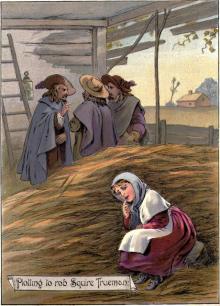 Goody Two-Shoes
Goody Two-Shoes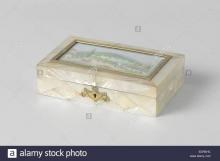 The Pearl Box
The Pearl Box And when you gone...
And when you gone... Stranger At The Other Corner
Stranger At The Other Corner My Young Days
My Young Days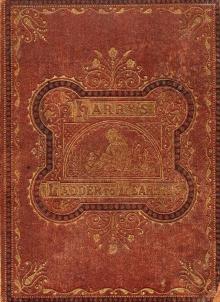 Harry's Ladder to Learning
Harry's Ladder to Learning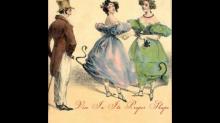 Vice in its Proper Shape
Vice in its Proper Shape_preview.jpg) Promise (the curse)
Promise (the curse) The First Sexton Blake
The First Sexton Blake Golden Moments
Golden Moments Hildebrand; or, The Days of Queen Elizabeth, An Historic Romance, Vol. 2 of 3
Hildebrand; or, The Days of Queen Elizabeth, An Historic Romance, Vol. 2 of 3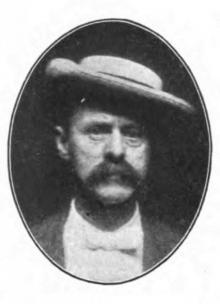 The Ice Queen
The Ice Queen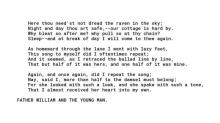 Phebe, the Blackberry Girl
Phebe, the Blackberry Girl Stoned Immaculate
Stoned Immaculate Hildebrand; or, The Days of Queen Elizabeth, An Historic Romance, Vol. 3 of 3
Hildebrand; or, The Days of Queen Elizabeth, An Historic Romance, Vol. 3 of 3 The Wonder of War on Land
The Wonder of War on Land Breaking Bailey
Breaking Bailey The Little Girl Who Was Taught by Experience
The Little Girl Who Was Taught by Experience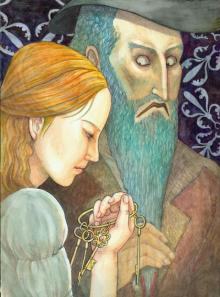 The Popular Story of Blue Beard
The Popular Story of Blue Beard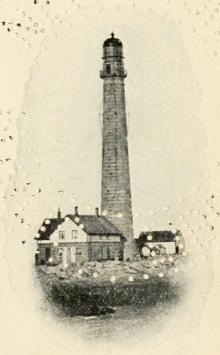 The Life Savers: A story of the United States life-saving service
The Life Savers: A story of the United States life-saving service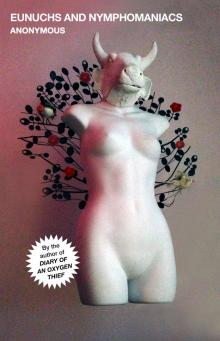 Eunuchs and Nymphomaniacs
Eunuchs and Nymphomaniacs Hildebrand; or, The Days of Queen Elizabeth, An Historic Romance, Vol. 1 of 3
Hildebrand; or, The Days of Queen Elizabeth, An Historic Romance, Vol. 1 of 3 Kitty's Picnic, and Other Stories
Kitty's Picnic, and Other Stories Two Yellow-Birds
Two Yellow-Birds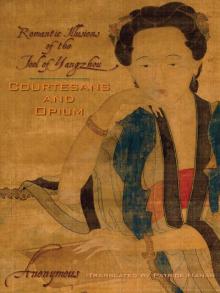 Courtesans and Opium
Courtesans and Opium The Emigrant's Lost Son; or, Life Alone in the Forest
The Emigrant's Lost Son; or, Life Alone in the Forest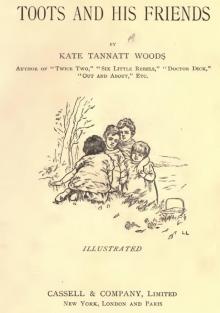 Toots and His Friends
Toots and His Friends Fast Nine; or, A Challenge from Fairfield
Fast Nine; or, A Challenge from Fairfield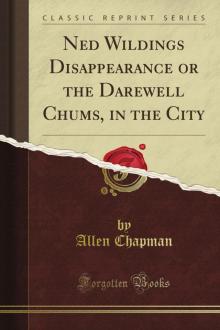 Ned Wilding's Disappearance; or, The Darewell Chums in the City
Ned Wilding's Disappearance; or, The Darewell Chums in the City A Picture-book of Merry Tales
A Picture-book of Merry Tales The Trail of The Badger: A Story of the Colorado Border Thirty Years Ago
The Trail of The Badger: A Story of the Colorado Border Thirty Years Ago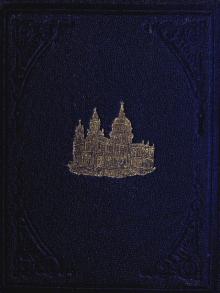 Peter Parley's Visit to London, During the Coronation of Queen Victoria
Peter Parley's Visit to London, During the Coronation of Queen Victoria The Rainbow, After the Thunder-Storm
The Rainbow, After the Thunder-Storm Arthur Hamilton, and His Dog
Arthur Hamilton, and His Dog The Story of the White-Rock Cove
The Story of the White-Rock Cove Grushenka. Three Times a Woman
Grushenka. Three Times a Woman Adventures of a Squirrel, Supposed to be Related by Himself
Adventures of a Squirrel, Supposed to be Related by Himself Falling in Love...Again
Falling in Love...Again The Colossal Camera Calamity
The Colossal Camera Calamity Child of the Regiment
Child of the Regiment Elimination Night
Elimination Night The Kingfisher Secret
The Kingfisher Secret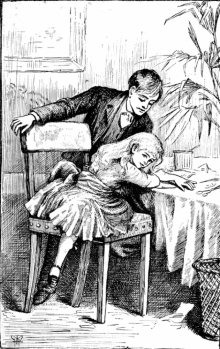 Left to Ourselves; or, John Headley's Promise.
Left to Ourselves; or, John Headley's Promise. The Island of Gold: A Sailor's Yarn
The Island of Gold: A Sailor's Yarn Adventures of Bobby Orde
Adventures of Bobby Orde Twain, Mark: Selected Obituaries
Twain, Mark: Selected Obituaries When Love Goes Bad
When Love Goes Bad The Incest Diary
The Incest Diary Calling Maggie May
Calling Maggie May The Infidelity Diaries
The Infidelity Diaries Diary of an Oxygen Thief (The Oxygen Thief Diaries)
Diary of an Oxygen Thief (The Oxygen Thief Diaries) ARABELLA
ARABELLA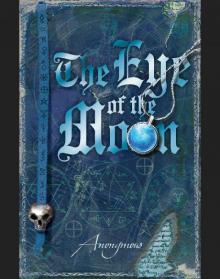 The Eye of the Moon
The Eye of the Moon Dara
Dara THE ALTAR OF VENUS: The Making of a Victorian Rake
THE ALTAR OF VENUS: The Making of a Victorian Rake The Book of Death
The Book of Death The Book of David
The Book of David The Devil's Graveyard
The Devil's Graveyard The Book With No Name
The Book With No Name I Am A Lesbian
I Am A Lesbian Njal's Saga
Njal's Saga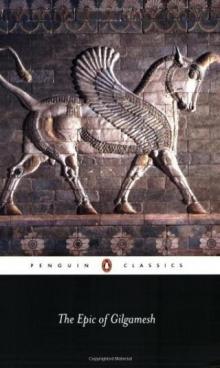 The Epic of Gilgamesh
The Epic of Gilgamesh Darling
Darling Tal, a conversation with an alien
Tal, a conversation with an alien Go Ask Alice
Go Ask Alice Aphrodizzia
Aphrodizzia The Campus Trilogy
The Campus Trilogy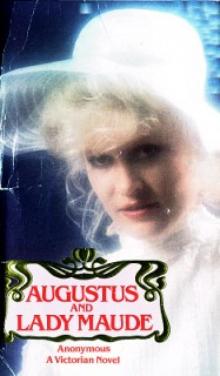 Augustus and Lady Maude
Augustus and Lady Maude Lucy in the Sky
Lucy in the Sky Sight Unseen
Sight Unseen Pleasures and Follies
Pleasures and Follies The Red Mohawk
The Red Mohawk A Fucked Up Life in Books
A Fucked Up Life in Books Chameleon On a Kaleidoscope (The Oxygen Thief Diaries)
Chameleon On a Kaleidoscope (The Oxygen Thief Diaries) Astrid Cane
Astrid Cane BEATRICE
BEATRICE The Song of the Cid
The Song of the Cid